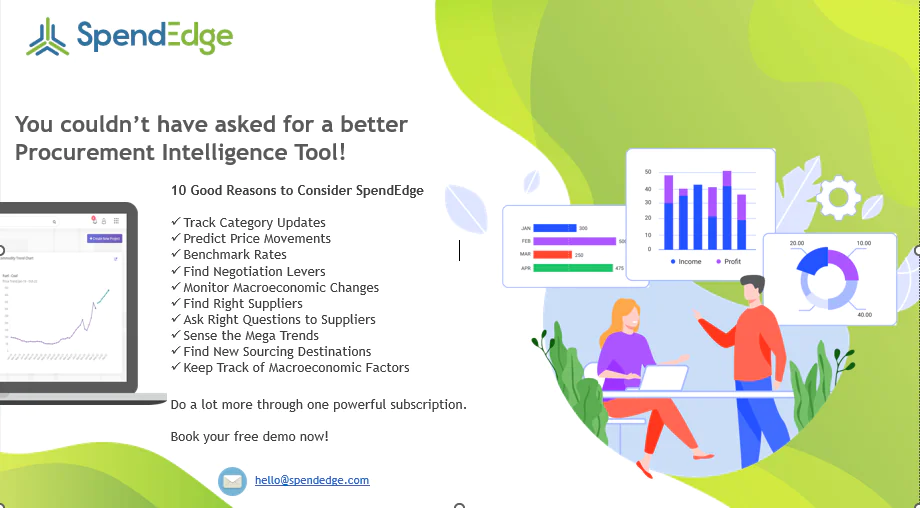Author: Associate Vice President, Marketing Strategy, SpendEdge.
Case Study Overview
| Client | Industry | Solutions |
|---|---|---|
| Global Food Manufacturing Company | Manufacturing, and Foods and Beverages | Identification and Addressing of Supply Chain Issues |
Overview of the Fast-Moving Consumer Goods (FMCG) Sector
The global FMCG sector includes products frequently bought and quickly sold out in supermarkets and hypermarkets. It is highly sensitive to changes in disposable income, making it very demand elastic. The sector’s market share is expected to grow significantly in the coming years due to macroeconomic factors like rising disposable incomes, better demographics, and the expansion of organized retail in developing countries. Additionally, FMCG companies are increasingly focusing on e-commerce due to the rise in mobile internet penetration.
Sector-Specific Challenges
Our analysis of recent FMCG trends shows that the FMCG sector firms are facing certain challenges which is prompting them to leverage category management solutions:
- Poor supply chain infrastructure: FMCG firms are facing challenges such as inadequate storage and transport facilities, and rising costs of raw materials and energy. Food items have shorter shelf lives and require quick delivery systems, frequent shelf restocking, and unique distribution and storage needs, which makes an adequate supply chain infrastructure critical for this sector
- Multiple micro-markets: Distinct customer needs in different micro-markets across geographies create variations in category preferences, posing a continuous challenge for FMCG firms to balance market demands and customization inefficiencies
The Business Challenge and Journey
About the Client:
The client was a multinational food manufacturer that produces convenience foods and snacks in more than 15 countries worldwide.
Client Requirement:
The client was aiming to reduce its operational costs in the Asia-Pacific region and to identify the latest FMCG trends impacting its business. Also, it had a long-term, single-source relationship with a major premix manufacturer. Premix prices were rising due to currency depreciation and poor weather affecting raw materials. To achieve significant savings, premix costs needed optimization, but the client lacked visibility into the primary cost drivers.
Solution Offered:
To help the client achieve its cost-saving goals, SpendEdge’s category management experts used a comprehensive research methodology and engaged with prominent FMCG stakeholders. They gathered information from various proprietary sources, including paid industry databases, company presentations, and industry forums. Then, they collated the gathered data and presented an analysis to the client. This allowed the client to identify key negotiation levers for securing favorable price terms with the premix supplier and to understand the latest FMCG trends.
Client Journey:
During this category management engagement, the FMCG client was able to identify and gain an understanding of the key cost drivers affecting the overall premix cost. These included packaging, blending, transportation, wastage, quality control, and clearing and handling charges. Additionally, the client collaborated with the supplier to develop a mutually beneficial periodic review and price revision mechanism.
Key Questions Answered in This FMCG Category Management Engagement
Question 1:
How is the market performing?
Question 2:
What are the latest trends and developments?
Question 3:
How is the market likely to shape up in the near and far future?
Question 4:
What are the key risks?
Question 5:
What are the procurement best practices?
Results
With the help of SpendEdge’s FMCG category management solution, the client successfully reduced overhead expenses through effective supplier negotiations. It also established a supply chain model linking the premix manufacturer with its raw material supplier to further cut costs. As a result, the client was able to achieve savings of more than 5% in this category.
How SpendEdge Can Help





